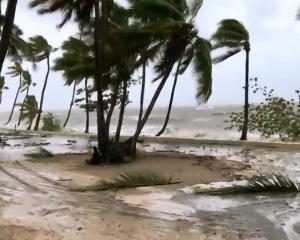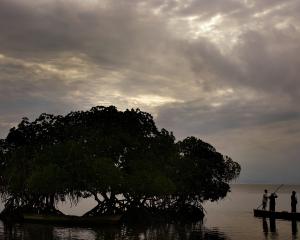Rupert Murdoch, whose companies own the world's most extensive media holdings, has over the decades had to deal with many varieties of government, from true democracies to totalitarian states, so he is unlikely to be surprised by the actions of New Zealand's nearest dictatorship, the Bainimarama regime of Fiji.
For some time now, Mr Bainimarama's government has been threatening a new law to control the media in the island nation. Last Friday, it was promulgated, and by any measure of freedom of expression, it amounts to a grave blow to the Fijian people.
It should be remembered that the media in the country is already subject to censorship from the public emergency regulations introduced in 2009, and that sanctions against both individuals and company entities - including fines, police harassment, threats and actual deportations- have been a consequence.
The new law effectively extends the control of the state to all media. It also broadens the sanctions the dictatorship has assumed to oppress those of its citizens who irritate it.
Thus, the decree is worded so loosely that it appears journalists will be able to be imprisoned; censorship has been expanded; a new media authority has been created whose job it is to prevent the publication of reports that may be considered to threaten the public interest or incite disorder.
This organisation also has the power to investigate the media using capacities of search and will be able to seize publishing machinery and equipment used to produce reports. It will be backed by a tribunal which has the power to jail individuals for up to two years, and to fine individuals, publishers and companies.
Furthermore, the decree requires local ownership of media outlets to the extent that at least 90% be Fijian citizens permanently residing in Fiji.
This latter requirement is probably of most interest to Mr Murdoch, since one of his companies owns Fiji's most important and independent newspaper, the Fiji Times. It has been critical of the Bainimarama regime and has been accused by it of being biased and "unprofessional".
The Pacific Area Newspaper Publishers' Association has condemned the decree: foreign newspaper publishers must relinquish control of their businesses within three months or they will cease to be allowed to operate.
This means the future of the Fiji Times and the Fiji Daily Post (majority-owned by an Australian), are in doubt, while the Fiji Sun apparently meets the criteria of local ownership.
No doubt Mr Murdoch and others associated with the Fijian media will be in urgent contact with their respective governments to intervene as the shadow of suppression deepens over Fiji.
A fire sale of media organisations under the threat of the media decree will not improve the prospect of a return of democratic government to the Fijian people.
The Bainimarama regime's announced intention to join the Non-Aligned Movement, coupled with a media decree that destroys the last vestiges of freedom of expression, should surely signal to both the New Zealand and Australian governments that its relatively gentle treatment of the republic should now cease.
Prime Minister John Key has said the decree is a "a step too far"; if he really believes this then he should have no difficulty explaining to his recently elected neighbour in Canberra that the time for treating with the Bainimarama government is over.
And that process should not be confined to the ending of diplomatic and trade links: the regime is essentially being propped up by tourism and Chinese "aid". Most of its visitors are from New Zealand and Australia.
It is time for individuals to make their feelings known by choosing other Pacific Island destinations for their traditional winter holiday.
It might be thought that such action would have the harshest impact on Fijian workers; but it might also result in pressure from Fijian citizens on Mr Bainimarama to modify his actions before the nation becomes a lost cause to its oldest friends; anyone with business or investment interests in Fiji must now be worried about their prospects.
It is not only beginning to look like that failed state, Zimbabwe, but seems to be adopting some of Robert Mugabe's most defective ideas.











